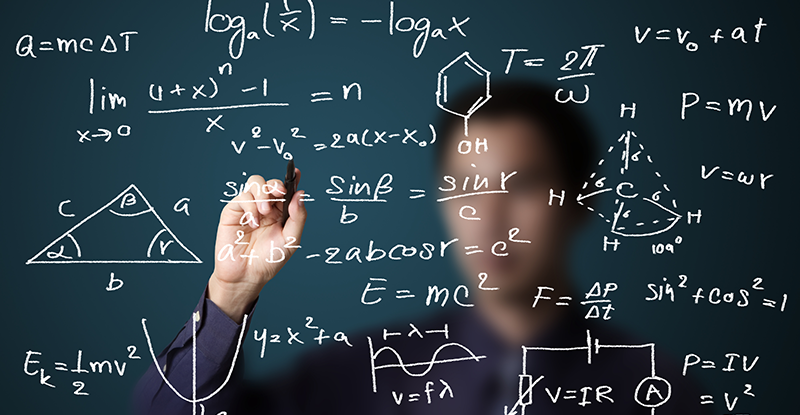The Duty of Trainee Success Stories in Highlighting the Advantages of Russian Mathematics for Learners
Pupil success stories serve as compelling proof of the benefits offered by Russian mathematics education and learning. These narratives frequently highlight exactly how structured methods cause significant improvements in analytic abilities and vital thinking. Ivan's exemplary abilities and Maria's improvement from having a hard time student to competitors champion exemplify this influence. Such achievements question about the more comprehensive effects of these experiences. What can be found out from these stories, and exactly how might they affect future learners?
Understanding the Structures of Russian Math
Although frequently shrouded in complexity, the structures of Russian mathematics are rooted in a distinctive educational philosophy that stresses crucial and problem-solving thinking. This technique prioritizes deep understanding over rote memorization, encouraging trainees to involve with mathematical principles proactively. The educational program is structured to cultivate analytical skills, commonly incorporating theoretical concepts with sensible applications. Educators play an important role, employing methods that challenge students to explore numerous analytic strategies and collaborate with peers.Central to this academic model are extensive standards and a strong emphasis on rational reasoning, which grows resilience and flexibility amongst students. The emphasis on foundational concepts allows pupils to develop a strong mathematical structure, outfitting them with tools to take on complex problems. This extensive training not only prepares pupils for advanced study in maths but additionally instills a lifelong gratitude for the technique, shaping their capability to assume seriously in diverse contexts.
Highlighting Private Success Stories
Success tales in Russian mathematics often exhibit the performance of the country's strenuous academic structure. For circumstances, a young pupil named Ivan showcased amazing analytical skills after joining a regional Russian mathematics program. His ability to take on complicated mathematical concepts at a very early age attracted the focus of instructors and peers alike. Maria, an additional student, proceeded from struggling with fundamental arithmetic to winning local math competitions within a year, highlighting the transformative potential of this educational approach.These individual stories serve as effective reviews to the advantages of Russian mathematics, highlighting just how organized methods and a deep focus on fundamental abilities can lead to considerable academic accomplishments. The experiences of pupils like Ivan and Maria not just inspire their peers yet additionally reinforce the worth of a durable mathematical education. Their success tales resonate with parents seeking reliable learning paths for their kids, further advertising the appeal of Russian maths
The Impact of Conceptual Comprehending on Learning
They are much better furnished to use their expertise to fix intricate issues when trainees establish a strong theoretical understanding of mathematics. This understanding functions as a structure that allows learners to make connections between various mathematical principles, promoting much deeper cognitive involvement. In Russian mathematics programs, focus on conceptual knowing nurtures a frame of mind that values understanding over rote memorization. Students are urged to discover underlying principles, which enhances their capability to reason and assume critically. This technique not just help retention but also empowers learners to adjust their expertise to novel situations. In addition, a strong theoretical grasp of mathematics can cause enhanced self-confidence, as trainees locate themselves capable of tackling tough material. As they acknowledge the connections in between concepts, they come to be a lot more skilled at discussing their believed processes, even more strengthening their understanding. Eventually, a concentrate on conceptual understanding in mathematics education considerably improves the overall discovering experience for students.
Enhancing Problem-Solving Abilities Via Real-Life Applications

Structure Self-confidence and Resilience in Pupils
Self-confidence and strength are necessary attributes that empower students to navigate the challenges of learning maths. The Russian Math strategy stresses important source analytical and essential thinking, promoting a positive learning setting where pupils are motivated to deal with difficult ideas. As they engage with complicated problems, learners develop a sense of achievement that enhances their self-confidence. Effective conclusion of difficult jobs reinforces their belief in their abilities, making them more ready to take dangers in future mathematical endeavors.Moreover, the iterative nature of Russian Mathematics encourages determination. When pupils experience problems, they are taught to see these moments as opportunities for growth instead of failings. This frame of mind cultivates durability, enabling them to recover and proceed seeking understanding. By refining these traits, trainees not just master mathematics but also acquire important life skills, preparing them for difficulties past the classroom.
Contrasting Conventional Math Techniques With Russian Math

Instructing Technique Differences
Several educators acknowledge considerable differences between typical math training techniques and the Russian strategy, which emphasizes conceptual understanding and problem-solving. Conventional approaches often concentrate on memorizing memorization and step-by-step jobs, prioritizing quick estimations over deep comprehension. On the other hand, Russian mathematics motivates pupils to explore mathematical ideas through a selection of techniques, fostering important reasoning and creative thinking. This technique frequently entails collective knowing, where trainees collaborate to review solutions and concepts. Furthermore, Russian mathematics incorporates real-world applications, making mathematical principles more appealing and relatable for students. These distinctions highlight the unique staminas of the Russian method, which intends not only to show math skills yet also to develop a solid mathematical state of mind that can be applied throughout numerous contexts.
Problem-Solving Approaches
While standard mathematics approaches typically highlight step-by-step treatments to get to solutions, Russian math focuses on a more holistic approach to analytic. This approach encourages pupils to explore numerous methods, fostering creative thinking and critical thinking. In conventional settings, students might rely greatly on memorization and step-by-step knowledge, often leading to a narrow understanding of principles. On the other hand, Russian math promotes deep comprehension, permitting students to attach mathematical principles to real-world applications. By offering troubles in diverse contexts, Russian mathematics obstacles students to assume outside the box and create flexible thinking skills. This divergence in techniques not only improves analytic capabilities however likewise constructs resilience in learners, equipping them to take on intricate obstacles with confidence and innovation.
Encouraging a Lifelong Love for Discovering in Mathematics
Maths commonly stimulates anxiety in pupils, cultivating a real enthusiasm for the subject can change their instructional experience. The Russian Mathematics approach highlights understanding concepts instead of memorizing memorization, motivating inquisitiveness and exploration. By involving students in tough yet rewarding analytical tasks, they develop a deeper appreciation for maths as a dynamic field.Success stories from students show how this approach supports a passion for discovering, leading to a much more extensive link with mathematical ideas. These narratives highlight the importance of determination and creative thinking, demonstrating that math is not merely a subject yet a device for critical thinking and real-world application.As trainees encounter and conquer challenges, they develop durability, enhancing the idea that knowing is a long-lasting trip. This viewpoint motivates them to seek further researches in maths and associated fields, eventually growing a generation of enthusiastic, positive mathematicians.
Often Asked Concerns
What Age Group Benefits A Lot Of From Russian Math Programs?
The age that profits most from Russian math programs commonly varies from early elementary to intermediate school. This duration fosters essential thinking and problem-solving abilities, important for understanding sophisticated mathematical principles in succeeding academic phases.
How Can Moms And Dads Support Their Children in Russian Mathematics?
Moms and dads can support their kids in Russian math by providing important site a helpful knowing environment, urging regular method, engaging with instructors for understandings, promoting a positive mindset towards difficulties, and commemorating accomplishments to enhance self-confidence and inspiration.
Exist Online Resources for Russian Mathematics Learners?
Several on the internet sources exist for Russian math students, consisting of interactive systems, training video clips, and forums. These tools improve understanding and involvement, offering trainees with varied knowing possibilities to strengthen their mathematical abilities properly.
What Credentials Do Russian Math Instructors Normally Have?
Commonly, Russian math teachers have advanced levels in maths or education and learning. Many have extensive mentor experience and are navigate to this website learnt details methodologies that stress analytical, important reasoning, and a deep understanding of mathematical concepts.
Just How Does Russian Math Accommodate Different Discovering Styles?
Russian mathematics fits various discovering styles with diverse mentor techniques, promoting analytical reasoning and analytic abilities. Trainers use visual help, hands-on activities, and collaborative workouts, making sure students involve with mathematical ideas in manner ins which resonate with their specific choices. A young student called Ivan showcased exceptional analytical skills after getting involved in a regional Russian math program. Maria, an additional student, proceeded from struggling with basic arithmetic to winning local mathematics competitions within a year, highlighting the transformative potential of this educational approach.These specific narratives offer as powerful endorsements to the benefits of Russian mathematics, highlighting how organized approaches and a deep emphasis on foundational skills can lead to substantial academic accomplishments. The Russian Mathematics method stresses problem-solving and critical thinking, fostering a favorable learning atmosphere where trainees are urged to take on difficult concepts. In contrast, Russian math urges students to explore mathematical concepts through a selection of techniques, cultivating critical reasoning and creative thinking. By presenting problems in different contexts, Russian mathematics obstacles pupils to assume outside the box and create adaptive reasoning skills.
Comments on “How Student Success Stories Spark Peer Motivation in Group Sessions”